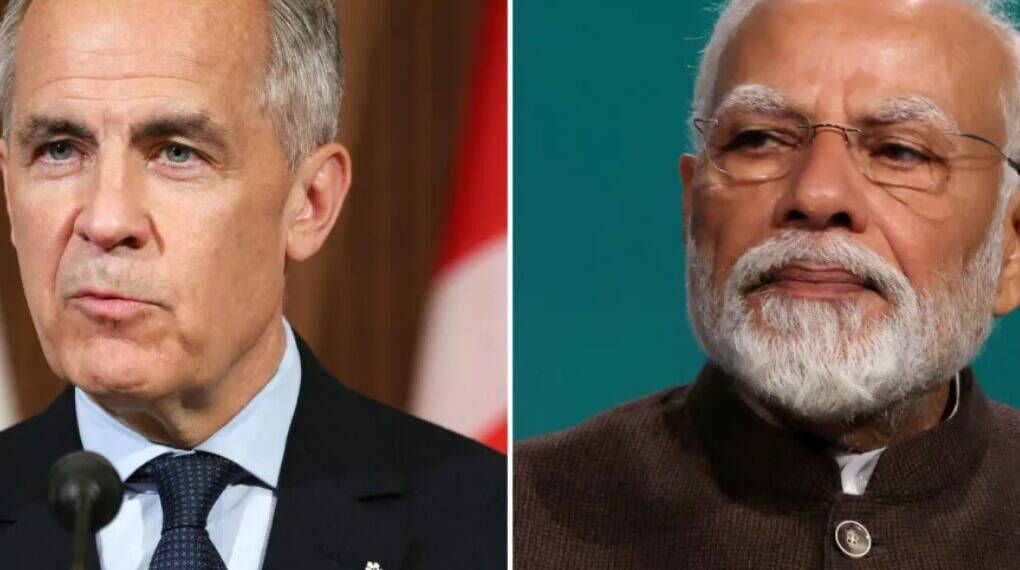After months of baseless allegations, diplomatic aggression, and public posturing, Canada has finally come full circle. Prime Minister Mark Carney’s invitation to Indian Prime Minister Narendra Modi for the upcoming G7 Summit in Alberta is not a gesture of goodwill—it is an admission of reality. It proves what India has maintained from day one: New Delhi cannot be sidelined. More importantly, Canada’s moral posturing is hollow and unsustainable in the face of global necessity.
Canada’s Accusations Were Politically Motivated
Let’s not forget the sequence of events that triggered this diplomatic low point. In September 2023, then-Prime Minister Justin Trudeau stood in Canada’s parliament and accused India of being involved in the killing of Hardeep Singh Nijjar, a known Khalistani separatist operating from Canadian soil. With zero credible public evidence and an apparent disregard for due process, Trudeau turned a tragic incident into a geopolitical stunt. India vehemently denied involvement and rightly demanded proof. None came. What did follow, however, was an international embarrassment for Canada.
While India was firm and dignified in its response, Canada doubled down, even expelling diplomats and suspending trade negotiations. But as time passed, it became clear that Trudeau’s accusations were more about pandering to domestic vote banks than genuine concern for justice.
Canada Shelters Extremism, Then Complains of Consequences
Hardeep Singh Nijjar wasn’t just an innocent “activist”—he was a leader in the Khalistan movement, which has a long and bloody history of violence and secessionism. India designated him as a terrorist years before his death. Canada, under the guise of protecting “freedom of speech,” allowed extremist Khalistani elements to openly threaten Indian diplomats, glorify terrorism, and raise flags calling for India’s disintegration—all on Canadian soil.
India warned Ottawa repeatedly about the dangers of allowing its territory to become a haven for anti-India extremists. Canada ignored the warnings and now cries foul when those elements become entangled in violent outcomes.
This selective blindness is not just dangerous—it’s hypocritical.
The G7 Invitation: A Quiet Diplomatic Defeat for Canada
Fast forward to today, and Carney is doing exactly what India expected Canada would eventually have to do: acknowledge reality. India is the fifth-largest economy in the world, the most populous country, and a core player in global supply chains. Without India, any discussion on energy, AI, or critical minerals is incomplete.
Carney’s claim that he “consulted with G7 partners” before inviting Modi is another veiled admission: Canada was pressured to act like a grown-up. Other G7 nations—particularly the U.S., France, and Germany—recognize India’s indispensable role on the global stage. Canada couldn’t afford to isolate itself over a case that still has more questions than answers.
This isn’t reconciliation. This is a retreat.
Canada Can’t Preach Human Rights While Ignoring Its Own Failures
Canada has repeatedly tried to take the high ground by claiming to defend “democratic values” and “human rights.” But these claims ring hollow in light of its own record. From its treatment of Indigenous communities and the discovery of mass graves near residential schools, to its role in arms sales to authoritarian regimes, Canada’s moral credibility is far from spotless.
Trying to lecture the world’s largest democracy on justice and the rule of law, while providing a platform to groups that openly call for violence in another country, is not just laughable—it’s offensive.
India: A Nation That Commands Respect, Not Permission
India’s rise on the global stage is based not on Western approval, but on merit. It is a technology powerhouse, a space leader, a diplomatic bridge between the Global North and South, and a responsible nuclear power. India is not seeking validation from the G7; it’s being invited because, without it, the summit is incomplete.
Modi’s acceptance of the invitation, despite Canada’s recent hostility, shows maturity and global vision. Unlike Canada’s reactive politics, India is focused on long-term strategic engagement.
Conclusion: Time for Canada to Look in the Mirror
The G7 invitation proves one thing above all else: India was never the problem. Canada’s refusal to confront extremism within its own borders, its eagerness to appease fringe elements, and its reckless diplomatic adventurism have done more harm to Indo-Canadian ties than anything else.
The invitation to PM Modi is not just a diplomatic gesture—it’s a forced recognition that India cannot be ignored, bullied, or blamed without consequence. If Canada truly wants to repair relations, it must first stop projecting its internal failures onto others and start behaving like a responsible international actor.
India doesn’t need Canada’s validation. It never did.








